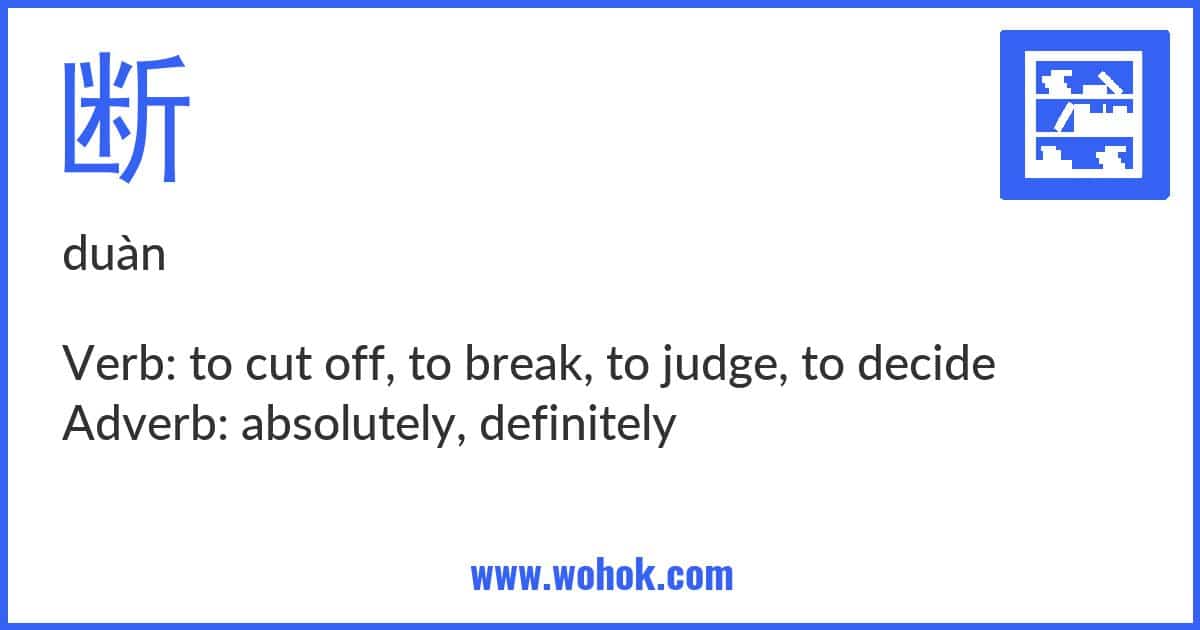The Chinese word 断 means “to break” or “to cut off”. It is often used in contexts related to ending or discontinuing something, such as a relationship, a habit, or a conversation. It can also be used to describe a physical break or cut, such as a broken bone or a cut piece of paper. In addition, 断 can be used in idiomatic expressions, such as 断章取义, which means to take a passage out of context. Overall, 断 is a versatile word with multiple meanings and uses in Chinese.
Translation
Verb: to cut off, to break, to judge, to decide
Adverb: absolutely, definitely
Pronunciation
Example Sentences
| Chinese | Pinyin | Engish |
|---|---|---|
| 他的话断了一半 | tā de huà duàn le yī bàn | He stopped talking halfway |
| 这个玻璃杯断了 | zhè gè bō li bēi duàn le | This glass cup is broken |
| 我们的合作关系已经断了 | wǒmen de hé zuò guān xì yǐ jīng duàn le | Our cooperation relationship has ended |
| 他断断续续地说话,让人听不懂 | tā duàn duàn xù xù de shuō huà, ràng rén tīng bù dǒng | He spoke incoherently, making it hard to understand |
| 水管断了,需要修理 | shuǐ guǎn duàn le, xū yào xiū lǐ | The water pipe is broken and needs repair |
| 我们断断续续地走了好几个小时 | wǒmen duàn duàn xù xù de zǒu le hǎo jǐ gè xiǎo shí | We walked intermittently for several hours |
| 这个道路因为山体滑坡而断了 | zhè gè dào lù yīn wèi shān tǐ huá pō ér duàn le | This road is blocked due to a landslide |
| 我们的电话线断了,需要修复 | wǒmen de diàn huà xiàn duàn le, xū yào xiū fù | Our phone line is broken and needs to be repaired |
HSK
断 is part of HSK Level 4 in HSK 2.0. In the newer HSK 3.0 it is part of HSK Level 3.
Learning Card


